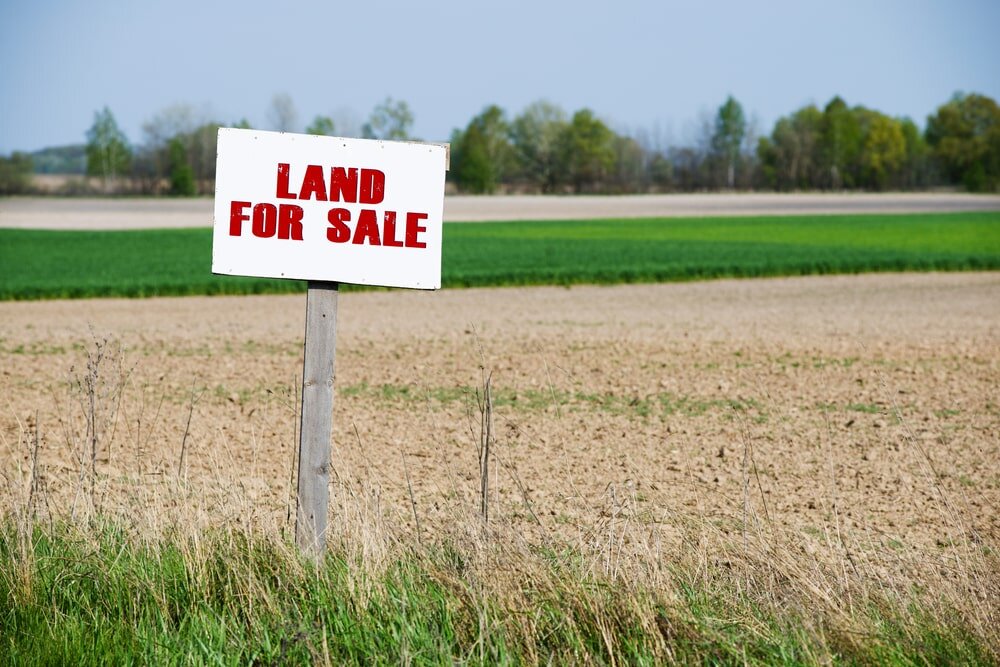If you’re considering buying vacant land in the United States, you should keep several key factors in mind to make an informed decision. This article will cover 15 essential considerations, including zoning laws, access to utilities, soil quality, topography, environmental hazards, and more. By the end of this article, you’ll clearly understand what to look for when buying vacant land in the United States.

Zoning Laws
Zoning laws are among the most important factors to consider when buying vacant land. Zoning laws regulate what can and cannot be built on a particular parcel of land and how that land can be used. Make sure you research the zoning laws in the area where you’re considering purchasing land to ensure that your intended use is allowed.
Access to Utilities
Another critical factor to consider is access to utilities. Depending on the location and intended use of the land, you may need access to water, sewage, electricity, or gas. Be sure to check if utilities are already in place; if not, find out what it will cost to install them.
Soil Quality
Soil quality is another critical consideration when buying vacant land. The type and quality of the soil can affect drainage, plant growth, and even the ability to build a foundation. If you plan to use the land for agriculture or gardening, test the soil to determine its fertility and composition.
Topography
Topography refers to the physical features of the land, such as elevation, slope, and contours. It’s essential to consider topography when buying vacant land because it can affect drainage, accessibility, and even the ability to build structures. Be sure to survey the land thoroughly and consult with a professional if necessary.
Environmental Hazards
Environmental hazards are another critical consideration when buying vacant land. Hazardous waste, toxic chemicals, and other environmental contaminants can pose a significant risk to human health and the environment. Be sure to research the history of the property and the surrounding area for any potential environmental hazards.
Flood Zones
Flood zones are areas that are at risk of flooding during heavy rain or other natural disasters. If the land you’re considering is in a flood zone, obtaining insurance and building structures may be more challenging. Be sure to research the flood zones in the area and consider the potential risks before purchasing.
Natural Disasters
Natural disasters such as hurricanes, tornadoes, and earthquakes can cause significant damage to structures and infrastructure. If you’re considering buying land in an area prone to natural disasters, research the area’s history and the potential risks.
Easements and Access
Easements and access rights are legal agreements that allow others to use a portion of your land for a specific purpose, such as a road or utility line. Considering easements and access rights when buying vacant land is essential because they can affect your ability to use and develop the property.
Property Taxes
Property taxes can be a significant expense for landowners, varying widely depending on location and use. Be sure to research the property tax rates in the area where you’re considering purchasing land and factor them into your budget.
Resale Value
Resale value is another critical consideration when buying vacant land. Even if you don’t plan to develop or use the land yourself, it’s essential to consider its potential resale value. Research the real estate market in the area and consider the potential demand for land in that location.
Title Issues
Title issues can be a significant problem when buying vacant land. It’s essential to ensure that the seller has clear title to the property and that no liens or other encumbrances could affect your ownership. Hire a reputable title company or real estate attorney to conduct a thorough title search before closing the deal.
Legal Restrictions
Legal restrictions can limit your ability to use or develop the land. These can include building codes, land-use regulations, and environmental regulations. Be sure to research the legal restrictions in the area where you’re considering buying land and consult with an attorney if necessary.
Future Development Plans
Future development plans can significantly impact the value and use of your land. Research any proposed or potential development plans, such as new highways or commercial developments, and consider how they may affect your land.
Survey and Boundaries
A professional land survey can determine the exact boundaries of the property and any encroachments or easements. Be sure to hire a reputable surveyor to conduct a thorough survey before purchasing.
H2: Accessibility and Transportation
Accessibility and transportation are essential considerations when buying vacant land. Consider the proximity to major highways, airports, and public transportation, as well as the ease of access to the property.
Neighbourhood and Community
The neighbourhood and community where your land is located can affect its value and use. Consider factors such as crime rates, school districts, and nearby amenities when choosing a location.
Financing Options
Financing options for vacant land can be more limited than residential or commercial properties. Be sure to research your financing options before making an offer, and consider working with a lender specialising in land loans.
Cost and Budget
Finally, cost and budget are essential considerations when buying vacant land. Consider the purchase price, closing costs, ongoing expenses such as property taxes and maintenance, and any financing costs when determining your budget.
Conclusion
Buying vacant land can be an excellent investment opportunity, but it’s essential to consider all the factors mentioned above before purchasing. Conduct thorough research, consult with professionals as necessary, and make an informed decision to ensure the success of your investment. Are you a landowner? recently bought land, or have a contract on the land? Just sell It to us and earn a profit. We buy land in cash.
Get Started: Get Your Cash Offer Below…
We are direct land buyers. There are no commissions or fees and no obligation whatsoever. Start below by sharing where your property is and where we can send your offer…
